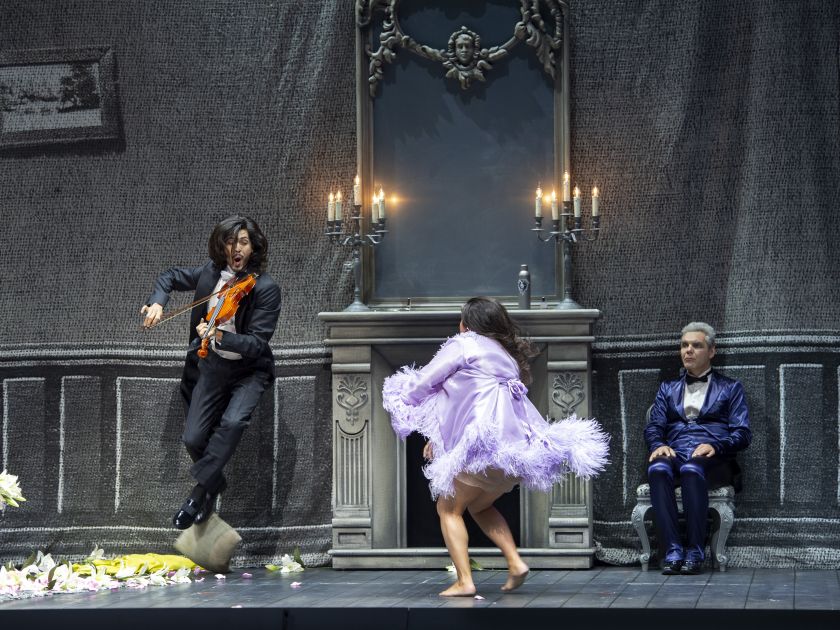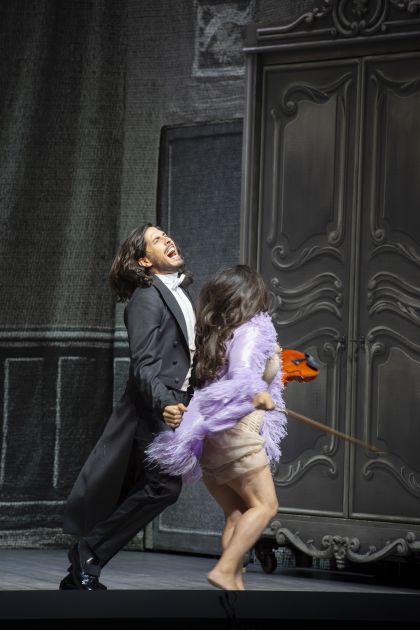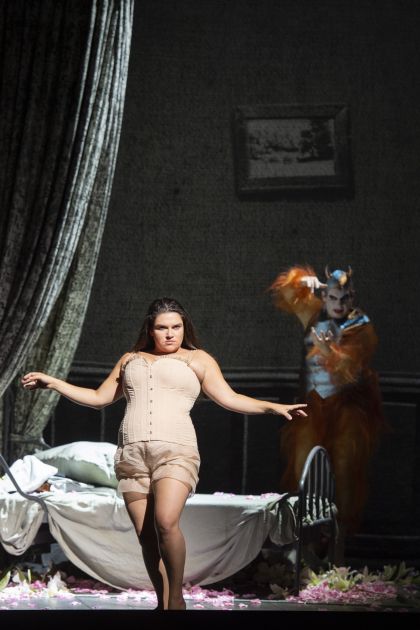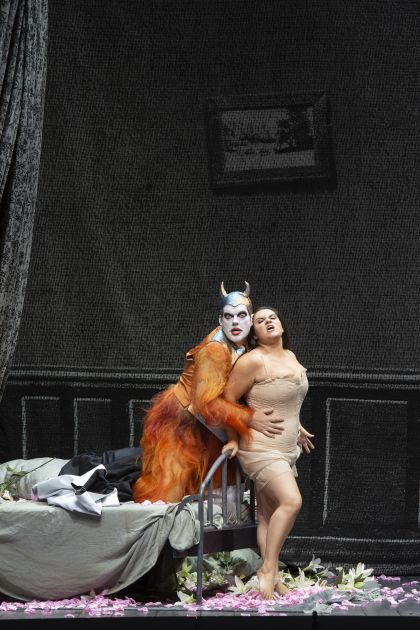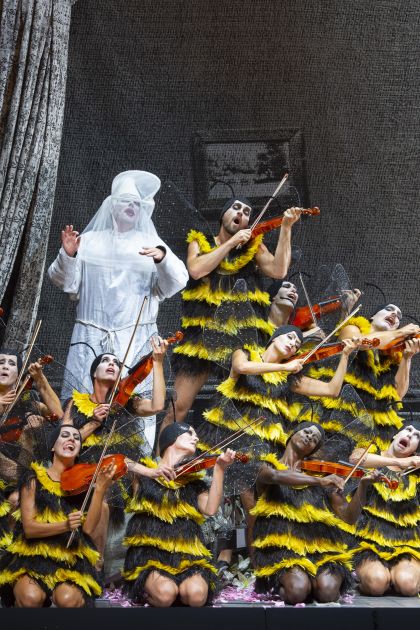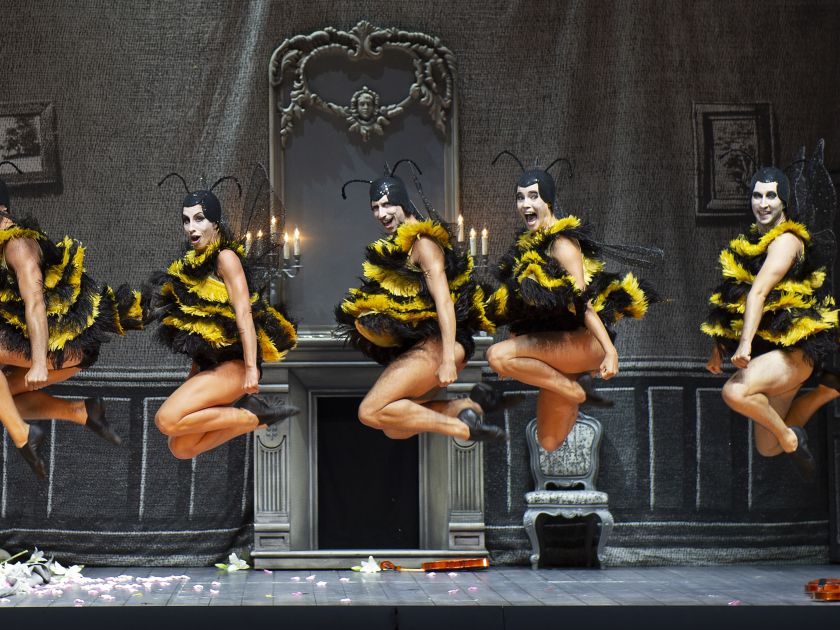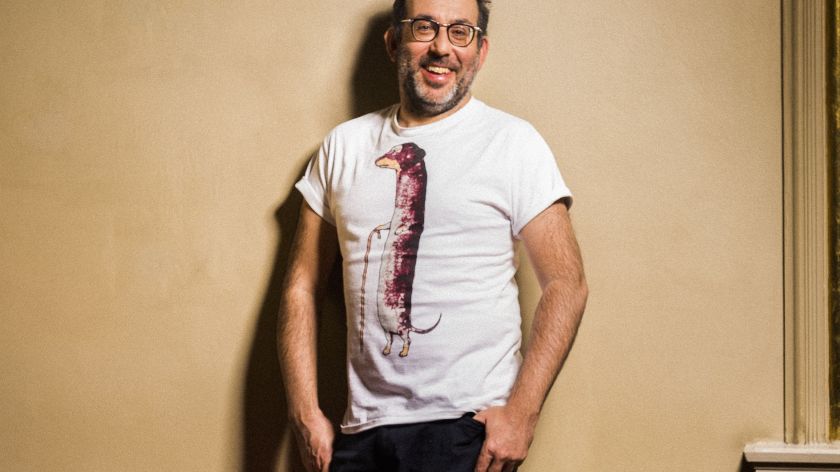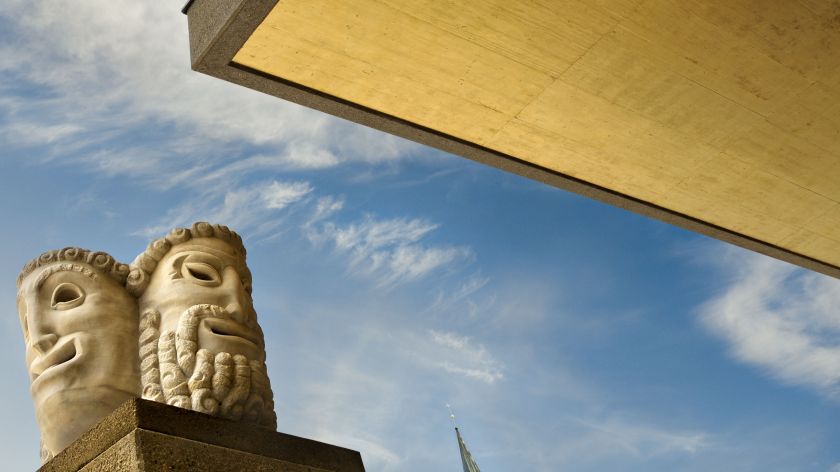Paris 1858. Offenbach war mit den Bouffes-Parisiens, seiner kleinen Bühne nahe den Champs-Élysées, in finanzielle Turbulenzen geraten. Er liebte den Überfluss, so wie der Hof des Zweiten Kaiserreichs unter Napoléon III. mit seinem parvenühaften Luxus ihn vorlebte. Mit der Ausstattung seiner Opérette-bouffe Mesdames de la Halle hatte er sich allerdings übernommen. Nun musste er auf der Flucht vor dem Gerichtsvollzieher untertauchen. Nur ein durchschlagender Erfolg konnte den knapp 40-Jährigen aus der Bredouille retten. Ein Orpheus-Libretto aus der Feder von Ludovic Halévy und Hector Crémieux lag bereits vor und bedurfte lediglich einer Überarbeitung. Von Offenbach in Musik gesetzt, sollte Orphée aux enfers zum Prototyp der „Offenbachiade“, zur Ur-Operette schlechthin und zugleich zum Rettungsanker werden.
Die Premiere verlief noch enttäuschend und der erhoffte Triumph blieb aus. Erst ein Verriss durch den Pariser Kritikerpapst Jules Janin eineinhalb Monate nach der Uraufführung brachte die Wende. Er löste eine Kontroverse über Offenbachs Freveltat — „dieses „Feuer der Respektlosigkeit“ (Émile Zola) — aus.
Aber war die Persiflage auf das klassische Altertum nicht längst zur Mode geworden? War das wirklich der Auslöser der Entrüstung? Es ging wohl weniger den Göttern und Halbgöttern der Antike an den Kragen als vielmehr dem Schauspiel der Diktatur Napoléons III. und der bourgeoisen Gesellschaft des Second Empire, „die vom Wasser der Lethe getrunken hatte, um sich ihrer Herkunft nicht erinnern zu müssen“. Orphée aux enfers macht sich „über das Geklapper lustig, das Eindruck schinden soll, denunziert Potemkinsche Dörfer“ und das „Gepränge des Kaiserreichs“, hinter dem sich der Drang ausleben kann, „die Sinne zu befriedigen“ (Siegfried Kracauer).
Das Pendel schlug schließlich für Offenbach aus: Der Erfolg seiner „tolldreisten Mythentravestie“ (Volker Klotz) zog an, und nach der 80. Aufführung war der Andrang des Publikums kaum mehr zu bewältigen. Die Aufführungsserie musste nach der 228. Vorstellung wegen Erschöpfung der Sänger unterbrochen werden.
Und noch ein zweites Mal wurde Orphée aux enfers dem Theaterprinzipal zum Retter in der Not: Nach der Proklamation der Republik 1870 hatte die Offenbachiade abgewirtschaftet und sein Schöpfer mit dem Théâtre de la Gaîté wenig Erfolg. Offenbach nahm sich also erneut den Orphée vor, machte aus zwei Akten und vier Bildern der Opéra-bouffon vier Akte und zwölf Bilder und nannte seine Neufassung eine „Opéra-féerie“. Zwar aktualisierte er das Libretto durch Seitenhiebe auf republikanische Einrichtungen und korrupte Gerichte, zugleich aber entführte er, dem Zeitgeschmack entsprechend, in eine Märchenwelt, verzauberte durch Ausstattung und Tricks der Maschinisten. Der finanzielle Erfolg stellte sich erneut ein.
Barrie Koskys Fassung für die Salzburger Festspiele hält sich grundsätzlich an die Form der zweiaktigen Opéra-bouffon von 1858, die eine oder andere Idee von 1874 wird einfließen.
Eurydike, die zentrale Figur, hasst die durch ihren Gemahl personifizierte Musik. Und Orpheus selbst ist nicht mehr als ein kleiner, fader Musiklehrer aus Theben; Aristaeus, der göttliche Verführer, ist ein schauspielernder Honighändler, und Jupiter, der „Vater der Götter“, ein geiler Bock und unablässig auf der Pirsch. Offenbachs Hohn auf bürgerliche Ideale, die Erhabenheit der Musik und die Institution der Ehe lässt die „Öffentliche Meinung“ mit ihren Anstandspredigten buchstäblich ins Leere laufen. Der geheimnisumwitterte John Styx erzählt die Geschichte vom verzopften Orpheus und seiner genervten Eurydike, von Göttinnen und Göttern auf der Suche nach Zerstreuung, angeödet vom Alltag im Olymp. Er erzählt von der Revolte im Götterhimmel, die Jupiter geschickt im Keim erstickt, indem er seiner Entourage Amüsement in Aussicht stellt. Brennend vor Neugier auf die schöne Entführte und den Wettstreit zwischen Jupiter und Pluto um die Gunst der Eurydike, begibt sich die illustre Gesellschaft auf einen Höllenritt in die Unterwelt, der im wohl bekanntesten Cancan der Musikgeschichte gipfelt. Und Eurydike? Sie macht schließlich allen einen Strich durch die Rechnung …
Susanna Goldberg
mehr dazu
weniger anzeigen

